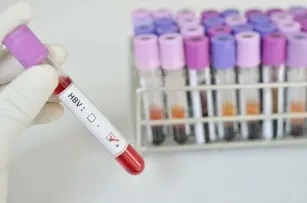Contents
- What is jaundice really and do we always get it the same way?
- Hepatitis A – how can I get infected?
- Hepatitis A – how to recognize the disease?
- How to treat hepatitis A?
- How to protect yourself from dirty hands disease?
- Hepatitis B – how can I get infected?
- Hepatitis B – how to recognize the disease?
- How to treat hepatitis B and how to protect yourself from infection?
- Hepatitis C – how can I get infected?
- Hepatitis C – how to recognize the disease?
- How to treat hepatitis C?
- How to protect yourself against the HCV virus?

Can you protect yourself from jaundice? We are getting sick more and more. What to do to avoid infection, how to protect yourself well, how to detect the disease and how to treat it? The most common jaundices are hepatitis A, hepatitis B and hepatitis C. We can get infected at the dentist, hairdresser, beautician, or simply by not washing our hands thoroughly. The disease commonly known as jaundice causes not only unsightly yellowing of the skin, but also allows the multiplication of viruses that enter the liver and wreak havoc in it.
What is jaundice really and do we always get it the same way?
Hepatitis A, B and C differ from each other both in symptoms and in the way they are infected. Vaccines are available for hepatitis A and hepatitis B, and their protection is very effective.
Hepatitis A – how can I get infected?
This type of viral hepatitis is also known as dirty hands disease, because the HAV virus enters our body through food. It penetrates from saliva and feces to things with which we have frequent contact. We can become infected by drinking untreated water, eating meals from an unknown, suspicious source or when using a public toilet.
Hepatitis A – how to recognize the disease?
The first symptoms appear as early as 30 days after infection. Often, however, the disease begins asymptomatically, in the elderly the symptoms worsen. There is fever, weakness, diarrhea and vomiting, and abdominal pain. There may also be itchy skin, dark urine, and aching joints. Yellow skin appears rarely.
How to treat hepatitis A?
The disease can be easily detected by a blood test. There is no cure for this type of jaundice, you can only alleviate the symptoms, the disease passes by itself.
How to protect yourself from dirty hands disease?
— wash your hands before eating and after using the toilet,
— drink boiled or bottled water,
– do not eat in suspicious places,
— do not sit on a seat in a public toilet.
Hepatitis B – how can I get infected?
The route of HBV infection is hematogenous. The virus can get into the blood during a procedure as a result of poorly sterilized tools, as a result of an injection, during treatments at a beautician, dentist or hairdresser. The virus can also infect us with a sexual partner, or the mother of the child during childbirth. However, this situation can be prevented if the mother knows that she is a carrier of the virus, the baby receives an injection of immunoglobulin and the first dose of the vaccine in the first day of life.
Hepatitis B – how to recognize the disease?
It depends on our immunity and the amount of virus in our body. Often the disease has no symptoms. Occasionally, acute inflammation of the liver occurs, causing enlargement of the liver, abdominal pain, vomiting, weakness and fever. In a few cases, acute inflammation progresses to chronic, leading to cirrhosis of the liver years later.
How to treat hepatitis B and how to protect yourself from infection?
A blood test is enough to diagnose the virus. Treatment will not completely eliminate the virus from the body, but only stop its further development. In order to prevent infection, pay attention to the use of disposable syringes during treatments, do not use someone else’s scissors, go to proven cosmetic plants. Always use a condom or be monogamous during intercourse. get vaccinated!
Hepatitis C – how can I get infected?
This type of jaundice is the most dangerous and difficult to treat. You cannot be vaccinated against it, and HCV comes in as many as 6 varieties. In Poland, genotype 1 dominates. We become infected through contact with infected blood, during intercourse, but only if the mucosa is damaged.
Hepatitis C – how to recognize the disease?
Acute hepatitis occurs approximately 4 to 12 weeks after infection and lasts for six months. In the case of strong organisms, the virus is eradicated, in the rest it turns into chronic hepatitis requiring drug treatment. The first recognizable symptoms are fatigue, anxiety, joint pain, nausea, loss of appetite, dark urine.
How to treat hepatitis C?
A blood test for anti-HCV antibodies is needed to detect the disease. In the case of a positive result, the patient is referred to the infectious diseases clinic. A liver biopsy is also performed to determine the severity of the disease. Treatment is individual and lasts several weeks.
How to protect yourself against the HCV virus?
Precautions should be taken as in the case of hepatitis B.









